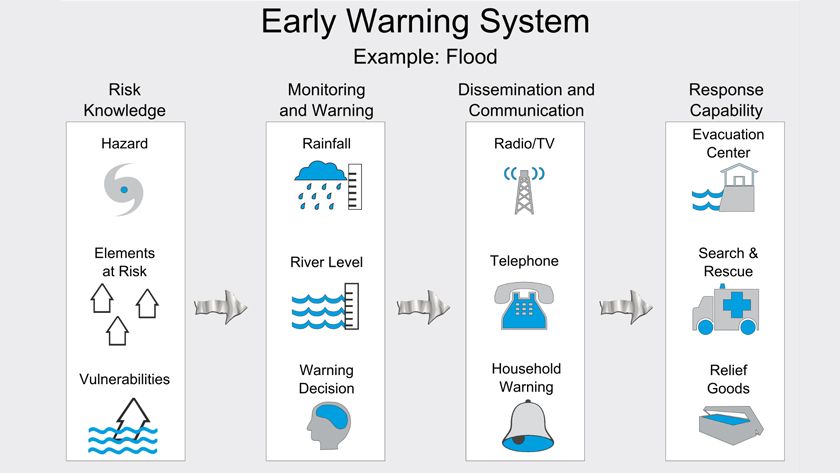Iran Press/ Iran news: An early warning system is an adaptive measure for climate change, using integrated communication systems to help communities prepare for hazardous climate-related events. A successful EWS saves lives and jobs, land and infrastructures and supports long-term sustainability.

Iran's parliament speaker Mohammad Bagher Ghalibaf in his pre-agenda speech on Sunday morning, while referring to the recent flood, called for the mobilization of all the facilities to immediately deal with the problems of the people, especially the treatment of the injured and compensation for the damages caused to the people.
His remarks came as at least 61 people have died and 32 persons are still missing after heavy rainfall caused flooding across Iran.
"Regarding the issue of flooding in different parts of the country, all the facilities of the country should immediately address the problems of the people, especially to find the missing and treat the injured. All should be mobilized and provide compensation for the damages caused to the people."
The speaker of the parliament emphasized setting up a national network comprising early warning systems for predicting incidents and natural disasters.
"Sectional handling of problems and treatment after the occurrence of incidents is undoubtedly not enough, municipalities are obliged to submit continuous reports regarding the dredging operations of canals and waterways."
Ghalibaf stated: "In addition to the need to speed up the establishment of the national early warning system, the country's rescue and relief system, the situation of deployment of troops, provision of necessary equipment and training should also be seriously improved according to the existing experiences."
214
Read More:
Relief efforts underway in flood-hit area in central Iran
59 people have been killed in floods until now
Monsoon rains ;source of flooding in South Western Iran
Mojtaba Darabi

